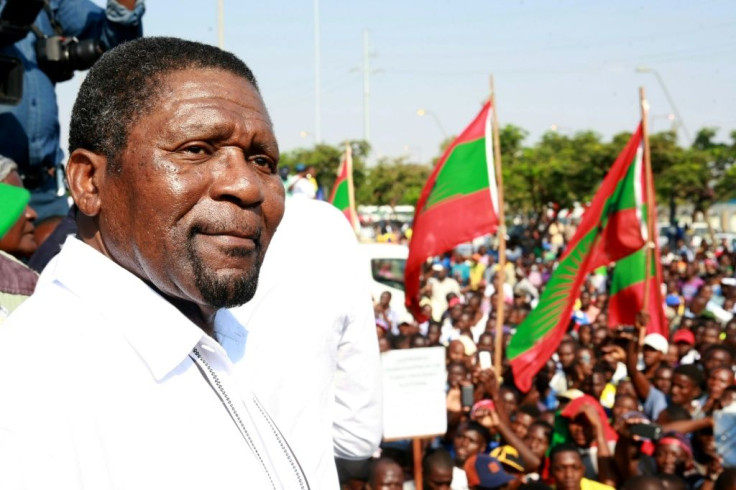Angolan Opposition Chief Hopes For Election Success As He Steps Down

Angola's opposition chief steps down this week after leading the party for 16 years, contending that the former rebel movement is on track to winning power.
Isaias Samakuva, 73, took the helm of UNITA in 2003, a year after its founder Jonas Savimbi was killed in battle with government troops.
But the former rebel group has lost every election it has contested since Samakuva transformed it into an opposition party.
In his final days in office, Samakuva told AFP that UNITA -- the National Union for the Total Independence of Angola -- had made far-reaching changes to lure voters and his successor could steer the party to victory at the ballot box.
The oil-rich southwest African state has been ruled uninterrupted by the People's Movement for the Liberation of Angola (MPLA) since independence from Portugal in 1975.
For nearly three decades, it was a proxy battlefield in the Cold War, with the Soviet Union backing the Marxist MPLA against the Western-supported UNITA.
"I know the challenges that lie ahead are enormous," said Samakuva.
He spoke to AFP ahead of UNITA's congress, which opens on Wednesday and will climax with the election of his successor.
"I sincerely hope that UNITA will take power," he said. "It is possible".
Angola's next general elections are scheduled to be held in 2022.
Formed during Angola's independence war in 1966, UNITA has long been associated with its charismatic but authoritarian founder Savimbi.
The civil war lasted 27 years and claimed at least half a million lives.
Only when Savimbi was shot dead in 2002 were weapons laid down, paving the way for UNITA's transformation into an opposition party -- but the MPLA's steely grip on power has remained.
"We have done a lot of things," said Samakuva, from his office at UNITA's headquarters in Luanda.
"First of all, we have been able to reorganise and restructure UNITA."
"Today, we are present everywhere in the country," he said, adding that membership had risen from 900,000 in 2002 to over three million.
UNITA secured 26 percent of the vote during Angola's last election in 2017, a distant second to the MPLA, which won 61 percent.
Despite that defeat, Samakuva remained upbeat.
"The MPLA is no longer the same, in my opinion," said Samakuva, suggesting UNITA's influence was "growing".
"I think that D-Day is coming," he added.
Samakuva had already said he would step down after the 2017 poll.
That election saw the end of ex-president Jose Eduardo dos Santos's 38-year rule after he chose not to run for office again.
His hand-picked successor Joao Lourenco won the vote on a promise to crack down on corruption.
Samakuva admitted he had become less critical of the regime since Lourenco took power.
"Joao Lourenco has tried to change the way of governing," he said.
"He has a lot of (good) intentions but life remains tough economically and socially... (while) the perpetrators of corruption are still there."
Despite extensive oil, gas and mineral reserves, the majority of Angolans live in poverty and continue to rely on subsistence agriculture.
UNITA delegates will elect their new president on Friday.
Five candidates are vying for the post, including UNITA's parliamentary leader Adalberto Costa Junior and the party's vice president Raul Danda.
The ideal successor, according to Samakuva, should "ensure continuity" and be endowed with "a lot of energy and intelligence".
"It's time to leave and give a chance to my comrades who also have ideas, energy and the desire to lead UNITA," he said.
"Sixteen (years) is a lot, I must now serve UNITA in another way."
© Copyright AFP 2024. All rights reserved.




















